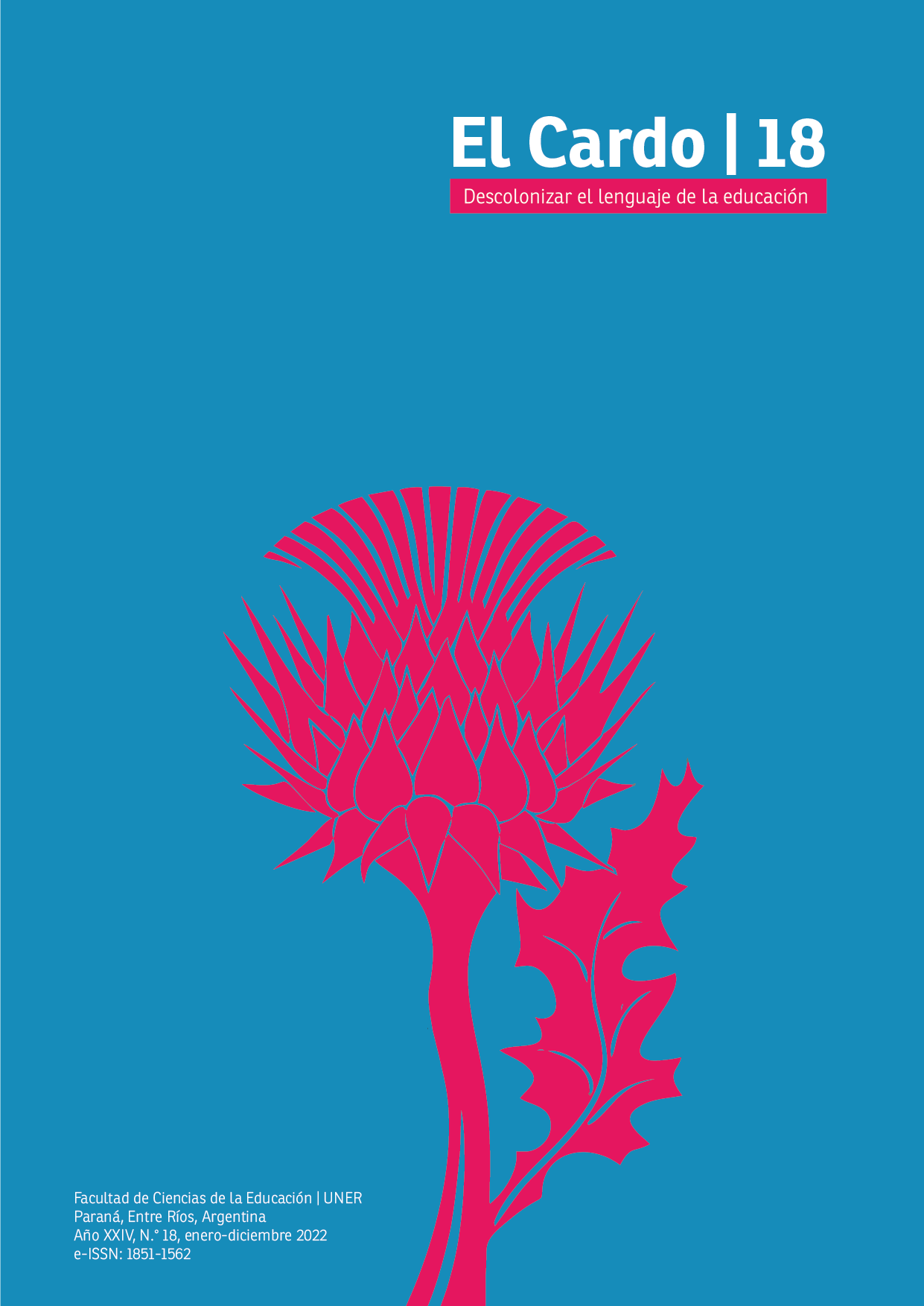Formative assessment mediated by information and communication technologies An experience in teaching subjects at the higher level
Main Article Content
Abstract
The present paper analyzes the evaluation’s educommunicative experience understood as a “formative process”, in order to assess the learning processes of students during the virtual course of a high level subject of the career “Tecnicatura Superior in Human Resources” run at a privately owned educational institution, in the province of Córdoba, Argentina.
During the school years 2020 and 2021 and due to the mandatory social isolation imposed by the pandemic COVID-19, the face-to-face teaching of the subject was replaced by the use of synchronous videoconferences. This allowed the development of learning and evaluation activities planned over a process structure (Kaplún, 1998) in order to increase the difficulty and progress in the contents.
The students gradually provided evidence of their learning processes by sharing their activities as requested. The listening, participation and commitment of the group in the videoconference was essential. The teacher -tutor- accompanied, supported, facilitated the analysis and reflection of the learning process, and then built up and shared - among all, the social product of learning.
It was observed that the direct contact with the situation and the world that surrounds them, “situated learning” (Molas Castell, 2018), motivated students in their learning processes and commitment to the task. Students were true protagonists, while the teacher and the class group appeared as co-workers in the corresponding analysis.
In this sense, the evaluation departed from the reproductive logic; instead, it qualitatively measured the learning processes, from successive individual and/or group interventions of students and teachers according to the activities planned in real contexts or close to the student’s reality.
Finally, it was interpreted that the dynamics of the group, generated a particular context of use of ICTs Coll (2008), which became the group and the teacher’s means to think and share their ideas, feelings and experiences.
Downloads
Metrics
Article Details

This work is licensed under a Creative Commons Attribution-NonCommercial-ShareAlike 4.0 International License.
References
Ardini, C. (2020). La evaluación como proceso emancipatorio. En Alberdi, M.C., Balbazoni, M., Lanati, V. (Ed.). Educom: mixturas de comunicación, educación y TIC. (pp. 8-17). UNR Editora. Editorial de la Universidad Nacional de Rosario. https://www.academia.edu/49037213/Libro_Educom
Celman, S. (1998). ¿Es posible mejorar la evaluación y transformarla en herramienta de conocimiento? En De Camilloni, A., Celman, S. Et. Al. (Ed.). La Evaluación de los aprendizajes en el debate didáctico contemporáneo. Paidós. https://www.uco.edu.co/ova/OVA%20Evaluacion/Objetos%20informativos/Unidad%204/4.%20es_posible_mejorar_la_evaluacion_y_transformarla.pdf
Coll, C. (2008) Aprender y enseñar con las TIC: expectativas, realidad y potencialidades. En Carneiro, R., Toscano, J.C y Díaz, T. (Ed.), Los desafíos de las TIC para el cambio educativo (pp.113-126). Fundación Santillana. https://postitulosecundaria.infd.edu.ar/archivos/repositorio/500/745/Coll_Desafios_TIC.pdf
Freire, P. (2005). Pedagogía del oprimido. Siglo XXI Editores.
Freire, P. (2011). La educación como práctica de la libertad. Siglo XXI Editores.
Kaplún, M. (1998). Una Pedagogía de la comunicación. Ediciones de la Torre.
Molas Castells, N. (2018). La guerra de los mundos. La Narrativa Transmedia en educación. UOC Oberta Publishing SL.





